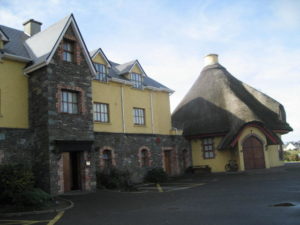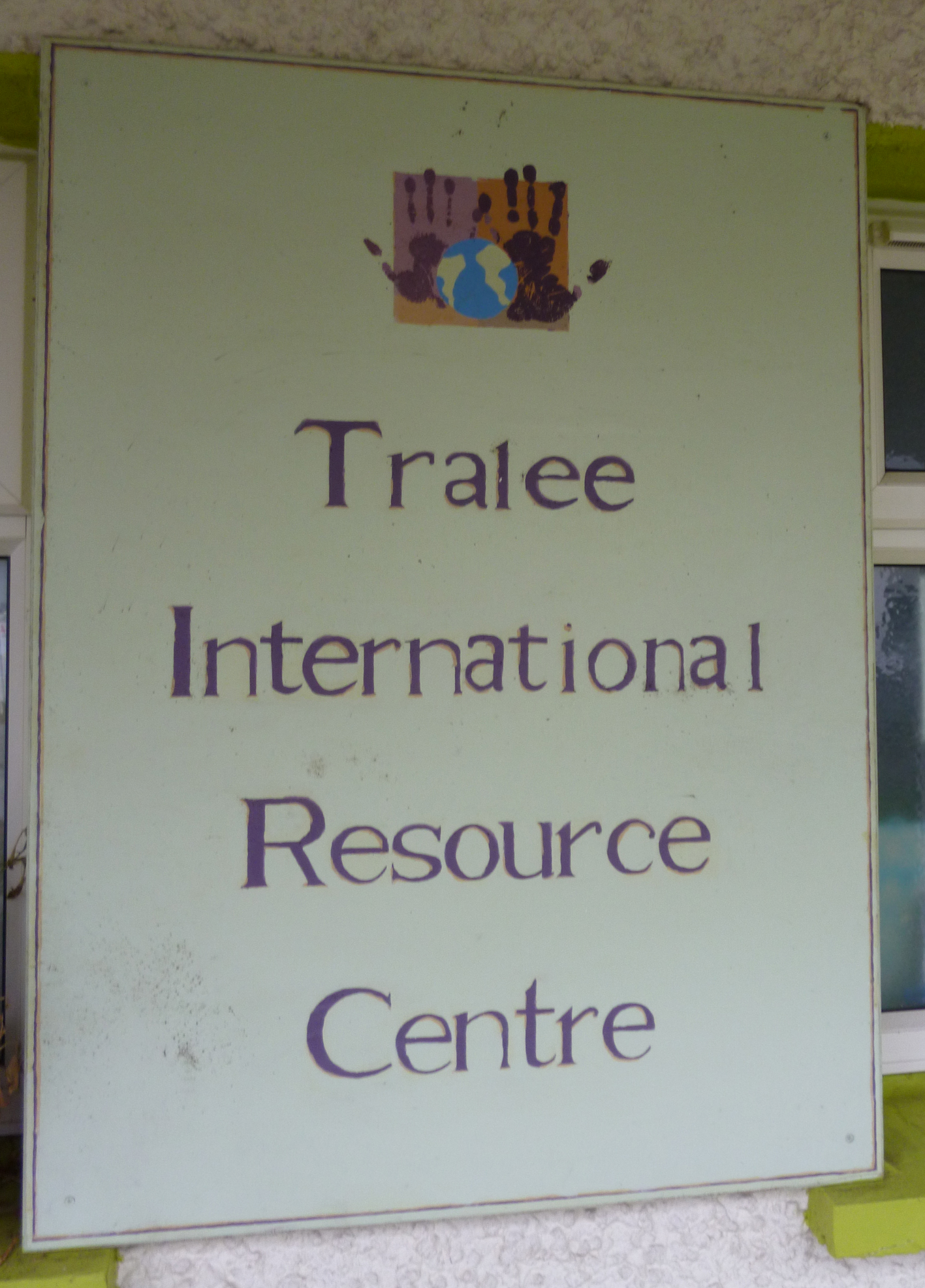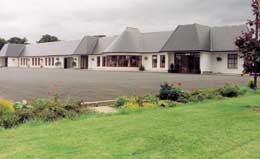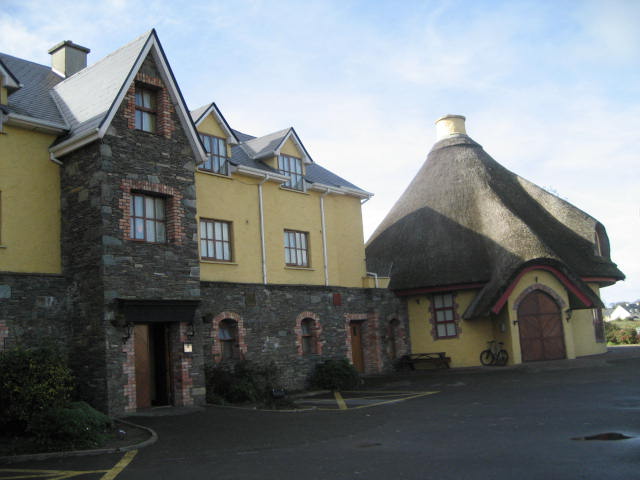In the second of a series, campaigner John Grayson examines the asylum markets for private companies involved in providing services under the Direct Provision (DP) system for asylum seekers in Ireland.
Who benefits from the system of direct provision? Who benefits from placing so many obstacles in people’s lives and imposing limits on the potential of children? Who benefits from not allowing people to cook for themselves, from not allowing mothers to pass on cultural knowledge of food to their children? Who benefits from removing the very idea of privacy from families, with children having to share rooms with their parents? Who benefits from imposing a structure on people that strips them of their dignity and identity; from not enabling smart, talented, well-educated people to participate in our society?
We certainly don’t benefit as a society. But some people do benefit. In fact, they profit from it. Direct provision is a multimillion-euro industry. (Una Mullally, Irish Times, 8 February 2016)
 Researching asylum accommodation ‘markets’ and refugee reception policies on the island of Ireland in December 2016,[1] I had been put in touch with Lucky Khambule and MASI (Movement of Asylum Seekers in Ireland). Lucky had invited me to the group’s weekly discussion meeting. I met up with Lucky, some activist researchers, and refugees newly arrived in Ireland, at the Our Table café in Temple Bar in the centre of Dublin. Ellie Kisyombe, one of the founders of the café, was there. Lucky welcomed me: ‘It’s good meeting here, this café was set up a few weeks ago, to end Direct Provision, and to highlight the fact that people spend many years in DP prevented from cooking for themselves and their children.’
Researching asylum accommodation ‘markets’ and refugee reception policies on the island of Ireland in December 2016,[1] I had been put in touch with Lucky Khambule and MASI (Movement of Asylum Seekers in Ireland). Lucky had invited me to the group’s weekly discussion meeting. I met up with Lucky, some activist researchers, and refugees newly arrived in Ireland, at the Our Table café in Temple Bar in the centre of Dublin. Ellie Kisyombe, one of the founders of the café, was there. Lucky welcomed me: ‘It’s good meeting here, this café was set up a few weeks ago, to end Direct Provision, and to highlight the fact that people spend many years in DP prevented from cooking for themselves and their children.’
Earlier that day I had been with Hope and May, activists in the Newbridge Asylum Support group, who had been telling me about the harrowing conditions in Direct Provision (DP) centres like the former Eyre Powell hotel in Newbridge they had both spent time in. I was planning to drive the next day to Tralee in County Kerry to meet people in the two DP centres there.
At the MASI meeting, people shared with me their views on the history of MASI, and their campaigns to end DP. Some of the refugees present were living in the Balseskin Reception Centre in Finglas, near Dublin airport. Lucky said ‘People are sent there first so that they can be deported quickly. Direct Provision centres exist because it makes it easy to deport people. They know where the “evaders”, as they call refugees, are. When the new Act comes in later this month there will be a lot of people deported.’
At the end of December 2016, a new International Protection Act came into force in Ireland, and Lucky proved to be right about the effects.
Lucky Khambule pointed out that, ‘the only real changes in the DP system have come from direct action by asylum seekers in the centres, and demonstrations. The official refugee organisations do nothing. Only asylum seekers and refugees can change the system. Companies make a great deal of money from the centres. There’s an American corporation, Aramark, making millions of euros out of DP’. One of the men in the group who lived in Balseskin told me, ‘The centre is run by East Coast Catering and they have another centre in Dublin.’![]()
The Irish asylum market
From the introduction of Direct Provision in 1999, centres were scattered in remote corners of sixteen counties in Ireland, which meant that asylum seekers were, as the Irish Times put it in April 2005, ‘stuck in Ireland’s hidden villages‘. The Ministry of Justice in 2001 set up the Reception and Integration Agency (RIA) as a contracting agent to procure disused holiday camps, rundown hotels, caravan sites, abandoned convents, and hostels, and to agree contracts to run the centres with individual owners, development companies who had bought the premises, and international corporations who identified an investment opportunity.
This Irish asylum market, created in 2001, was one of the first examples in Europe of state-sponsored and funded privatisation and outsourcing of asylum accommodation. This pattern has now become dominant across northern Europe, in what Daniel Trilling in 2015 called Europe’s Migrant Industrial Complex.
Only three of the DP centres were purpose-built; one of them, the Balseskin centre, was recently described as ‘bleak’. Seven of the DP centres are owned by the Irish government and the management of them outsourced. For instance, the Kildare Road centre in Cork was purpose-built, is owned by the government, and is managed by the US corporation Aramark. The DP system has become ‘a multimillion-euro industry’.
 In August 2014, with demonstrations and hunger strikes being organised in many DP centres, Karen McHugh, CEO of Doras Luimni, an asylum rights charity, interviewed in the Sunday World, contrasted the incredible profits being made by the individuals who own many of the centres with the below-poverty-line existence of the residents:
In August 2014, with demonstrations and hunger strikes being organised in many DP centres, Karen McHugh, CEO of Doras Luimni, an asylum rights charity, interviewed in the Sunday World, contrasted the incredible profits being made by the individuals who own many of the centres with the below-poverty-line existence of the residents:
‘Seven of the 34 provision centres are owned by the State, as far as we are aware, €850 million has been paid out to private owners by the State since the year 2000. €62m was paid in 2012 and €55m in 2013 to private individuals and businesses.’
Carl O’Brien of the Irish Times, in his investigations into DP in 2014, established that in 2013, RIA figures ‘showed the average daily rate per person paid to private contractors ranges from €15.50 in State-owned centres to €29.49 at commercially owned centres … The average cost for accommodation of asylum seekers in direct provision is €213.78 to each person a week.’
In March 2017, Eoin Ó Broin, a Dublin Sinn Fein TD, established through a freedom of information request that, for a family of two adults and two children living in Clondalkin Towers DP centre, ‘the cost of direct provision is €31,000, on average, per year. The equivalent cost for the same family on JSA and HAP (welfare benefits) is at least €10,000 per year cheaper. If people were allowed to work, particularly those with skills, the cost would be even less. Not only is this an appalling abuse of human rights, it is an appalling waste of taxpayer’s money to the tune of millions of euro.’
By 2016, private companies accommodating asylum seekers and refugees in Ireland were paid €64.13 million, a rise of 12 per cent on the €57 million spend in 2015, for thirty-seven DP centre contracts with the RIA, according to the Agency’s annual report. Eight of the contractors were paid a total of €43.5 million For the 4,000-plus people living in the contractors’ centres, the Government provided €3.6 million for direct provision allowance in 2016.
In 2016, two of the DP contractors, Mosney Holidays and East Coast Catering, each received contract fees in excess of €7 million. Between 2002 and 2016 Mosney Holidays received a total of €119.4 million and East Coast Catering €115 million.
According to the Irish Times, ‘the profits enjoyed by the two companies, and a number of others in the sector, are not known, as they have unlimited status and are not required to lodge annual accounts with the Companies Office‘.
The RIA in 2016 published a Report on the value of the contracts given for DP accommodation from 2000 to 2014.The report did not disclose contract values beyond those awarded in 2013, for ‘commercial reasons’.
In October 2013 inspection reports carried out by the RIA, or by the private company QTS, on behalf of the Agency, were obtained under the Freedom of Information Act by the Irish Times. The reports are now published regularly, but are limited in the main to repairs, hygiene and nutritional levels of food. QTS Ltd., the private company contracted to inspect the other private contractors and their treatment of vulnerable traumatised families, is … a fire safety company.
Any complaints from residents in centres, to managers and to the RIA, are not recorded and logged officially by the agency.
Direct provision tendering breaches EU procuring rules
The process of tendering for direct provision centres by the RIA is problematic. Contracts for services in the seven state-owned centres are awarded on an EU competitive tendering basis – this applies to Aramark’s contracts in Cork, Athlone and Knockalisheen, and Onsite Facilities Management (OFM) Ltd contracts in Tralee and Killarney. These companies have been awarded renewable three-year contracts.
The contracts for the twenty-nine DP centres owned and managed by private contractors are awarded, not on a competitive basis, but in the words of the Irish Comptroller and Auditor General in his 2015/16 report:
The Irish Comptroller and Auditor General report declared that this form of tendering breached ‘EU procurement rules’.
These negotiated contracts are awarded on a one- or two-year, and at times longer rolling basis; some individuals and groups of companies have held contracts since the earliest days of tendering and contracting, in 2000 and 2001. All the contractors are paid monthly in advance for the numbers of asylum seekers they contract for, regardless of whether the centre is full.
In 2015, the RIA announced that it was planning to contract twelve more centres, because of increased demand, and was seeking ‘expressions of interest’ from parties ‘interested in providing accommodation and ancillary services for persons seeking asylum in the State’, ‘which can accommodate upwards of 50 persons and which should be reasonably close to all services, eg, shops, schools, transport etc’.
In advertisements, the RIA said: ‘Arising from the recent significant increase in asylum applications the RIA intends to draw up, from the expressions of interest, a list of potential service providers with whom it may be in contact if/when the need for such service provision arises’.
Ireland’s dubious asylum market is one of investment and ownership of DP centres, and the vulnerable families and people in them, by seventeen different companies, who range from one of the world’s richest investment funds, and two transnational corporations, to small family businesses, and even private individuals, making money from the asylum seekers in the local DP centre they own, or manage, on contracts from the Irish state.[2]
OFM Ltd and conditions in Tralee DP centres

In Tralee, in December 2016, speaking with residents of Johnston Marina Hotel and Atlas House, the DP centres in Tralee, County Kerry, I gained some insight into the running of DP centres owned by the Irish government with the everyday management outsourced to a local County Kerry company, Onsite Facilities Management (OFM) Ltd. OFM, formed in 2006, was delivering RIA three-year rolling contracts, for the two Tralee centres, and also for the Atlas House and Park Lodge DP centres in Killarney, County Kerry.
When I was in Tralee, the company’s previous contract had just run out, in November, and they were starting a new contract. EU records show that the company had just completed a three-year contract worth €4,656,159 for the two centres. The contract price was for ninety places at Johnston Marina, and 110 at the Atlas House Centre Tralee.
The company appears to be family-owned, by Jamie Carnegie, Catherine Leen, Elaine O’Connor and Michelle Carnegie. Catherine Leen is also listed as manager for the company’s two Killarney centres. Michelle Carnegie is the centre manager at Johnston Marina centre in Tralee. The company’s abridged accounts do not give a profit figure, but say that, in the year to the end of February 2013, the company paid €312,000 for security services to Onsite Security Management Ltd, a company owned by centre managers and OFM company owners Michelle Carnegie and Catherine Leen, as well as a further, undisclosed sum for management services. Accumulated losses at OFM, at the end of the period, were listed at €213,833, over €100,000 less than the accumulated loss at the end of the previous year.
The company’s other RIA contract in County Kerry for two other government-owned centres, Atlas House and Park Lodge in Killarney, was worth €3,515,278.50 from 2013 to 2016.

Talking in December to two of the Tralee DP centres’ residents in the Tralee International Resource Centre, Christine and Charles (not their real names), a very bleak picture emerged of the conditions in the OFM-managed premises. (See Direct Provision in Ireland: the holding pen for asylum seekers) The most recent official RIA inspection, in March 2017, of the Johnston Marina Hotel found evidence of bed bugs in one family room, deeply stained baths, and a carpet that need immediate replacement in a family room with four people.
Theresa, a volunteer worker in the Johnston Marina Hotel, where women and families were accommodated, also met me in the Tralee International Resource Centre. Theresa was a professional accountant from Nigeria who had herself experienced DP conditions. She told me that: ‘The management of the centre tightly control who goes into the centre, and visitors can only go into the reception and common room areas, not into the women’s or family’s rooms. I work with the women there, but I am always careful not to get into confrontations with the management when I am raising issues. They would simply stop me going into the centre.’
Theresa said:
‘It is really difficult for the women in there. One woman from the Balkans was on the verge of suicide. I encouraged her to come every day to be around me, when I was working at home. It took months for her to get back to being able to cope.
Everything is rationed, when the personal allocations of nappies run out, we have to help and provide some, the mothers simply cannot afford them. Local schools are really good, and teachers help with transport of children from the centre – there is no transport provided.
I am really settled here in Tralee. It is not easy for Black people, but I have made links with the local Gaelic football team, and my son plays in their junior side. The players and management love having a Black player – and a Black parent in the crowd.’
Other families have not been so lucky – many have been deported. One family from Nigeria, with four children, had been in the centre for nine years, children had been born here, and attended local schools. When they turned down the final appeal, the government said that they ’had shown little evidence of making efforts to integrate into local community life’.
I was constantly reminded of this theme of deportation, and the constant threat of being removed, which people in the DP centres felt. Gavan Titley, writing in 2011 about the reality of the threat of deportation, said:
‘This industrial processing is hiding in plain sight; on the last day of the Fianna Fáil/Green government (in January 2011), the acting Minister for Justice Brendan Smith signed two hundred deportation orders.’
Delays in the system and the legal business of direct provision
There is no limit on the time people can spend in DP centres, and cases of people spending over ten years in the system are common. Alan Hyde, a Cork-based businessman who has profited a great deal from his stake in companies owning and running DP centres, in an interview with the Sunday World in 2015 claimed ‘that ‘more cash is spent on legal fees than on direct provision. The length of time residents are in direct provision is related to the legal profession, who keep the asylum seekers in the courts system for a long time. It is also documented that there is more money spent on the legal representation of asylum seekers, than on direct provision.’
As Liam Thornton has pointed out, the 2015 McMahon report revealed that ‘There are around 1,000 persons waiting on judicial reviews as of February 2015 … As regards length of time in the judicial review process, thirty-eight per cent (381) have been in the system for over four years, and five per cent of those awaiting judicial reviews have been awaiting a hearing for more than five years.’ In 2015 there were considerable delays (up to twenty-seven months) in even getting a date for an application to a High Court judge for leave to seek judicial review.
The Irish judicial system is extremely slow and expensive. On 13 August 2017 the Irish Times reported High Court Judge Justice Humphreys saying:
‘There are at present 163 judges to cover a population of 4.8 million people, or only thirty-four judges per million people. That puts Ireland firmly in the bottom layer of the international league table and rock bottom of the European league table.’
The new International Protection Procedure introduced at the start of 2017 aims to streamline the asylum process and produce more speedy decisions. However, at the end of June it was reported that were more than 4,500 open cases. New asylum seekers (unless they fall within a prioritised category) are currently waiting around 18 months for an interview.
New refugee programme, same financial support and familiar companies making profits
Under the Irish Refugee Protection Programme (IRPP), established on 10 September 2015, the Irish Government pledged to accept ‘a total of 4,000 persons into the State by the end of 2017’, through a combination of resettlement and relocation schemes.

Syrian refugees, arriving in Ireland for resettlement, have been switched from the overall control of the Ministry of Justice, to the Office for the Promotion of Migrant Integration (OPMI). The RIA is still in charge of contracting accommodation, and has contracted three Emergency Reception and Orientation Centres (EROCs), for the accommodation of refugees during their initial orientation period of approximately 6-8 weeks, before they are moved on to permanent homes across the country. By the end of January 2017, 761 refugees had come to Ireland. By August 2017, 250 of the first 273 arrivals had completed their initial language training and orientation programme in one of the two EROCs, the Hazel Hotel in Monasterevin, and the Clonea Strand Hotel in Dungarvan. These refugees have been resettled in housing in Kerry, Cork, Clare and Limerick.
As programme refugees, the refugee status of these first 520 people was established before they travelled to Ireland. Syrian refugee families will not have to go through the asylum process, or spend time in DP centres. Nevertheless, the families followed the path of all asylum seekers since 2000 in Ireland, being dispersed away from Dublin to rural and coastal villages, in hotels contracted from private companies.
The first hotel to be contracted in August 2015, only 69 km from Dublin, was the Hazel Hotel, Monasterevin, County Kildare, contracted from Oscar Dawn Ltd., for 520 refugees. Oscar Dawn Ltd., is part of the Sean Lyons and Fazyard group of companies, who run the Georgian Hostel DP centre in Dublin, and the Montague Hotel DP centre in Laois. The Hazel Hotel is contracted for 143 family places for refugee families at any one time, and 520 places in all.
The Clonea Strand Hotel EROC, Dungarvan, County Waterford, 206 km from Dublin, is contracted from Clonea Strand Hotel Ltd., for around 100 places for refugee families. The contracting of this three-star hotel from the McGrath family of hoteliers follows the pattern of DP contracting for many years.
In 2016 the Ministry of Justice spent €51.7 million on the twenty-eight commercially owned DP centres. This figure includes €3.2 million for the Hazel and Clonea Strand hotels.
A welcome in Ballaghadereen
The third EROC is the recently refurbished Abbeyfield Hotel EROC, 186 km from Dublin, in Ballaghadereen, County Roscommon, contracted from investment company Next Week and Co., and contracted for around 200 refugees over two years, from January 2017.
The recently built Abbeyfield Hotel was closed down in the crash, and has been signed over by investors to the Department of Justice as a reception centre for Syrian refugees. Ballaghaderreen is a small, economically depressed town, with over thirty per cent unemployment. It has, according to the Irish Times, the cheapest housing in Ireland. One entire ‘ghost’ estate of more than fifty-one new houses in the town, abandoned after the crash, was bought by investors in 2015 for €500,000 – about €10,000 per house.
There has been a DP centre before in the town, and some former residents have stayed in the town. The community is probably already one of the most multicultural in rural Ireland, with a number of Pakistani-origin families of migrant workers, who worked at a former halal meat processing plant. The town seems to be welcoming the new residents. Local media quote an EROC worker in June 2017 saying:
‘The local community, and volunteers, have been trying to do everything they can do to make people feel welcome. It is a town with not a whole lot going on in it – in that way it’s been great for the community, because it’s made people come together to try and think of things to do.’
But the same income as all DP residents….
The refugees, during their stay in the EROCs, get similar support to individuals and families in Direct Provision generally. They are given full board accommodation, health and education support, and €19.10 (now €21.60) for adults, and €15.60 (now €21.60) for children per week.
Related links
Read John Grayson’s first article on DP: Direct Provision in Ireland: the holding pen for asylum seekers

